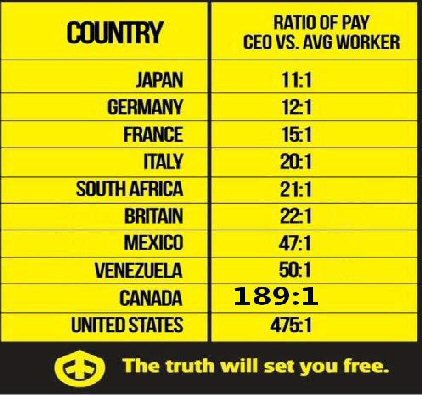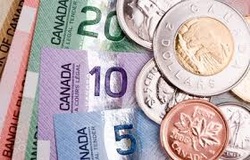The inherent vice of capitalism is the unequal sharing of blessings; the inherent virtue of socialism is the equal sharing of miseries.
Winston Churchill
The video below graphically demonstrates the growing inequality in the United States. While Canada does not have this degree of income inequality, it is moving in that direction. Under our current economic system, we see a greater and greater divide, not between the rich and the poor, but between the extremely wealthy and everyone else.
Are the extremely wealthy in their position because they are more clever with their money, they want wealth more, or somehow deserve to be richer than everyone else? Or is it because they work so much harder? 380 times harder?
Are the extremely wealthy in their position because they are more clever with their money, they want wealth more, or somehow deserve to be richer than everyone else? Or is it because they work so much harder? 380 times harder?
Is income inequality the inevitable outcome of capitalism? What about the idea of trickle down economics, or Adam Smith's theory of the invisible hand?



 RSS Feed
RSS Feed